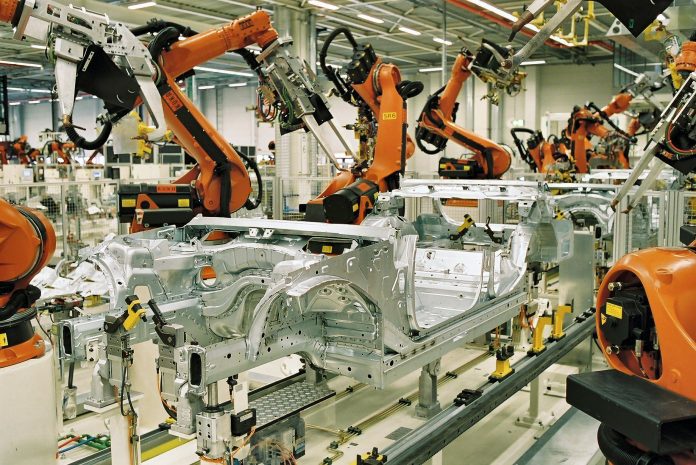Leading automotive manufacturers can expect to realise a remarkable 50 per cent jump in operating profits within five years of implementing a full smart factory set-up, according to new research. But car makers are so far struggling with the concept and technologies, it found.
Consultancy firm Capgemini said the automotive sector has set the most aggressive targets for smart factory initiatives, of all the so-called vertical markets for horizontally-deployed ‘internet of things’ technologies. At the same time, it found sectors like aerospace and manufacturing, at large, are more proactive with digital technologies.
Capgemini reckons the top 10 car brands could each realise an additional $4.6 billion in operating profits from connecting, automating and applying advanced data analytics and artificial intelligence (AI) techniques to their factory operations. But its research also found both car makers and their suppliers are struggling to understand the technologies and organise their processes.
“Companies are seeing challenges on implementation and lack of investment,” said Markus Winkler, executive vice president and global head of automotive at Capgemini Consulting. “There is also a lack of talent and capabilities, and a lack of coordination on the strategy side there within these organisations.”
By the end of 2022, automotive manufacturers expect that 24 per cent of their plants will be smart factories, with nearly half already having smart factory initiatives in place. However, aerospace and manufacturing are ahead of automotive in implementing initiatives, even though the car market has the highest share (49 per cent) of organisations investing more than $250 million in smart factories.
Worryingly, 42 per cent of automotive manufacturers accept they are not on track to realise the full potential of smart factories and are struggling to keep pace with other sectors. This is because more advanced manufacturers are also investing in software-based analytics and AI components, whereas many in car manufacturing are focusing too heavily on hardware-based components.
“There is an upcoming gap developing between OEMs and suppliers,” explained Winkler. “One of the reasons is investment, with suppliers thinking twice about spending – the pressure is high in the industry and it is getting higher. However, if suppliers want to keep up the pace with the OEMs, they have to accelerate their initiatives.”
The report echoes one of the sub-plots at Hannover Messe last week, where technology vendors admitted the IoT market’s ambitions were outrunning its means. “The market hasn’t come as far as we’d hoped,” commented Hima Mukkamala, general manager for IoT cloud services at Arm. “The market is pretty fragmented; by the time the customer sees the value it’s been too long.”
Darko Sucic, responsible for the centre of excellence of digital manufacturing at Dassault Systèmes, agreed: “Automation is not mature; it is still developing. But it’s not a question of technology, we need to change our processes. We’re further behind on that than technology. [The industry] focuses too much on technology and discussion on technology, and not the business processes that will help them transform.”
Winkler at Capgemini also noted the lack of talent and digital leadership needs to be tackled in order for automotive companies to succeed. “There is definitely a war of talents when it comes to software engineering and competences in techniques like AI. You need multiple ways to make it work – increasingly, these organisations need start-up knowledge to ramp up their own competence.”

